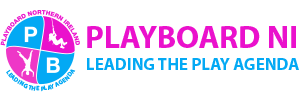The basic principle underlying the United Nations Convention on the Rights of the Child (UNCRC) is that children and young people (up to the age of 18 years) are born with the same fundamental set of rights as all humans, alongside a number of additional rights which arise from their vulnerability.
Comprised of 54 articles in total, article 31 of the UNCRC reads:
“States Parties recognize the right of the child to rest and leisure, to engage in play and recreational activities appropriate to the age of the child and to participate freely in cultural life and the arts.”
Recent progress reports from the UN’s Committee on the Rights of the Child included recommendations for the UK and Ireland regarding children’s play, as follows.
Concluding observations on the combined sixth and seventh periodic reports of the United Kingdom of Great Britain and Northern Ireland
Rest, leisure, recreation and cultural and artistic activities
48. The Committee recommends that the State party:
(a) Develop a strategy, with sufficient resources, aimed at ensuring children’s right to rest, leisure and recreation, including free outdoor play;
(b) Integrate children’s right to play into school curricula and ensure that children have sufficient time to engage in play and recreational activities that are inclusive and age-appropriate;
(c) Strengthen measures to ensure that all children, including children with disabilities, young children, children in rural areas and children with disadvantaged socioeconomic backgrounds, have access to accessible and safe public outdoor play spaces;
(d) Involve children in decisions regarding urban-planning processes, including public transportation, and in the development of spaces for children to play.
Concluding observations on the combined fifth and sixth periodic reports of Ireland
Rest, leisure, recreation and cultural and artistic activities
39. The Committee recommends that the State party:
(a) Strengthen support for initiatives aimed at promoting children’s right to leisure, play, recreational activities, cultural life and the arts, including the sports action plan, the national network of sports inclusion disability officers and the creative youth plan;
(b) Ensure that such activities are available and accessible for girls, children with disabilities, asylum-seeking and migrant children and socioeconomically disadvantaged children;
(c) Fully involve children in planning, designing and monitoring the implementation of relevant policies and programmes.
